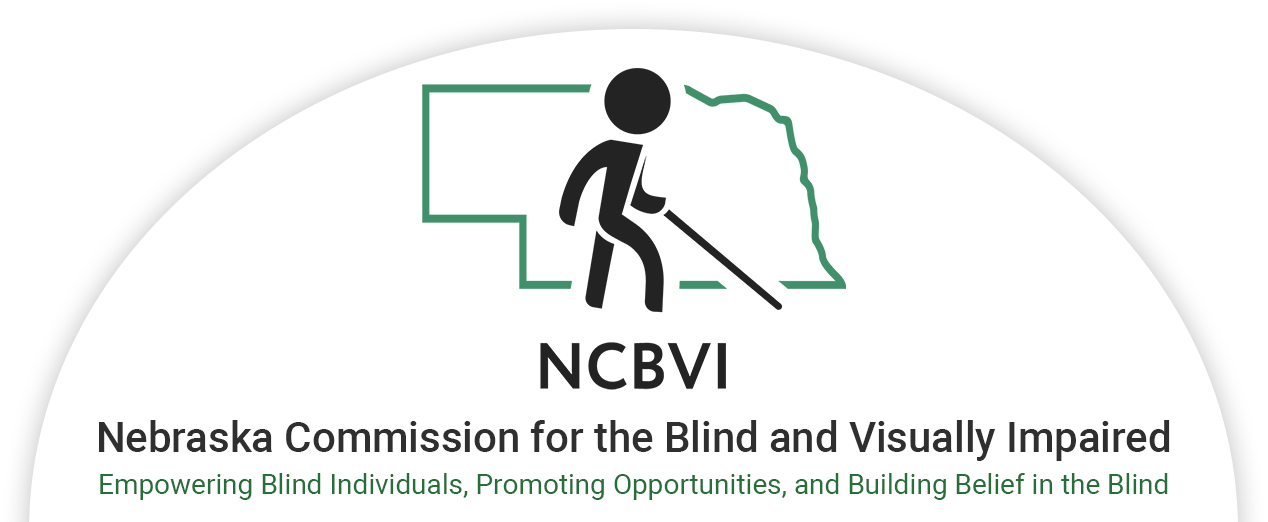NCBVI is proud to serve as a member of the Nebraska Individuals with Deaf-Blindness Project, which is an affiliate program of the Helen Keller National Center for Deaf-Blind Youth and Adults. The mission of the Project is to expand and improve services impacting the lives of Nebraskans who are deaf-blind of all ages and their families.
The Project works to enable people who are deaf-blind to live independently in the communities of their choice and achieve their independent living and vocational goals. The project also works to improve the ability of educational, vocational, blindness, and deafness agencies to serve people with both vision and hearing loss.
Services provided by the Project include:
- Information and referral services
- Individualized training in blindness and deafness skills, such as Braille, ASL, daily living skills, etc.
- Advocacy training
- Assistive technology
- Technical assistance to school districts
- Intensive training to ASL interpreters on serving deaf-blind consumers
Frequently Asked Questions
Who is considered Deaf-Blind?
People who are Deaf-Blind have a combination of both auditory and visual impairments, which present significant challenges in daily living, education, and employment. People who are Deaf-Blind communicate using a wide variety of strategies, including American Sign Language, tactile American Sign Language, fingerspelling, hearing aids, Braille, and electronic devices. People who are Deaf-Blind often live independently, have jobs, raise children, and live full and productive lives.
How can I contact and use the Nebraska Relay Service (NRS)?
The Nebraska Relay Service allows deaf and hard of hearing people who use a TTY to communicate with hearing telephone users. The NRS communication assistant (CA) or operator relays the information between the two parties. The CA will say what the TTY caller types and types what the hearing caller says. All states now offer statewide telephone relay services. In Nebraska, TTY callers may dial 1-800-833-7352 (TTY) or hearing callers may dial 1-800-833-0920 (VOICE).
VCO – Voice Carry Over.
When making a NRS call a person with a hearing loss and understandable speech may request VCO, allowing him/her to speak directly to the hearing caller. The person with a hearing loss then reads the hearing person’s responses on his/her TTY.
HCO – Hearing Carry Over.
When making a NRS call, a speech-disabled person who can listen may request HCO, allowing him/her to listen directly to the hearing caller. The speech disabled person answers by typing his/her response.
How can I go about getting an interpreter?
What do I need to be aware of when getting an interpreter?
What is the going rate for interpreters pay?
The Nebraska Commission for the Deaf and Hard of Hearing (NCDHH) offers a statewide sign language interpreter referral service. The Commission maintains a list of qualified sign language interpreters. They are responsible for taking interpreter requests and referring interpreting assignments to private practice interpreters. They are also available to answer questions you may have related to interpreting services.
Interpreters in private practice set their own fees, hours, and schedules. NCDHH works closely with area interpreters to become familiar with their fee scale, but they do not determine the fees that they charge. NCDHH recommends contacting the interpreter who accepted the assignment to discuss fees prior to the assignment.
Resources
Helen Keller National Center for DeafBlind Youths and Adults (HKNC)
American Association of the Deaf Blind
National Deaf-Blind Equipment Distribution Program

